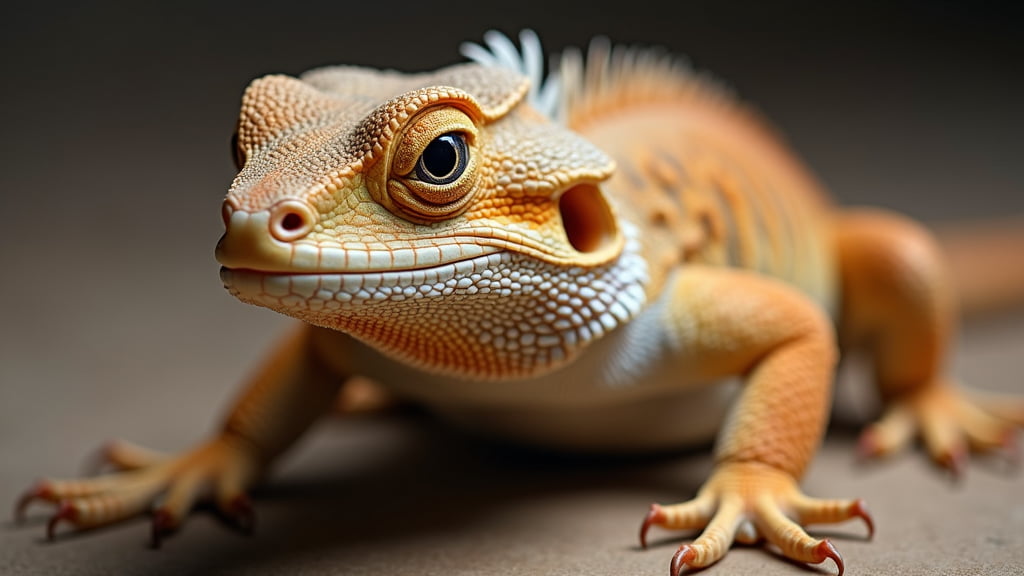Owning a bearded dragon is a rewarding experience, but it comes with the responsibility of ensuring their good health. One of the most common challenges you might face as a bearded dragon owner is preventing and treating parasites. If left unchecked, these unwelcome guests can cause significant harm to your scaly friend. This blog post will cover everything you need to know about parasite prevention and treatment for bearded dragons based on my years of experience with these fascinating reptiles.
Introduction to Bearded Dragon Health and Parasites
Bearded dragons are hardy reptiles, but they are not immune to health issues, particularly parasites. Parasites can affect your dragon’s digestive system, skin, and overall well-being. Keeping your pet healthy requires understanding the risks and taking proactive steps to prevent and manage parasitic infections.
Common Types of Parasites in Bearded Dragons
Internal Parasites
Internal parasites, or endoparasites, commonly affect bearded dragons’ gastrointestinal tract. These include:
- Nematodes (Roundworms): These worms can cause weight loss and poor appetite.
- Coccidia: A type of protozoa that can cause severe diarrhoea and dehydration.
- Cryptosporidium: This parasite is particularly challenging to treat and can lead to chronic issues.
External Parasites
External parasites, or ectoparasites, are less common but still a threat:
- Mites: These tiny pests can cause skin irritation and anaemia.
- Ticks: Rare, but possible, they can transmit diseases and cause discomfort.
Preventing Parasitic Infections
Regular Cleaning and Hygiene
Maintaining a clean habitat is crucial for parasite prevention:
- Daily Spot Cleaning: Remove uneaten food and faeces to reduce the risk of contamination.
- Weekly Deep Cleaning: Use reptile-safe disinfectants to clean the entire enclosure, including decorations and substrates.
Quarantine New Arrivals
Always quarantine new reptiles before introducing them to your main habitat:
- Separate Enclosures: Keep new dragons in a separate tank for at least 30 days.
- Health Checks: Monitor for signs of parasites or illness.
Regular Health Checks
Frequent health checks can catch issues before they become severe:
- Veterinary Visits: Schedule regular vet check-ups, ideally every six months.
- Faecal Tests: Have your vet perform regular faecal parasitic examinations.
Dietary Considerations
A balanced diet can boost your bearded dragon’s immune system:
- Varied Diet: Provide a mix of insects, vegetables, and greens.
- Gut-Loading Insects: Ensure feeder insects are well-nourished.
Recognising and Treating Parasitic Infections
Signs of Parasitic Infection
Knowing the signs of a parasitic infection can lead to early treatment:
- Weight Loss: Unexplained weight loss is a common indicator.
- Diarrhoea: Persistent diarrhoea can signal internal parasites.
- Lethargy: Reduced activity and poor appetite.
- Skin Issues: Mites and ticks can cause itching, redness, and sores.
Veterinary Diagnosis and Treatment
Always consult a veterinarian for diagnosis and treatment:
- Faecal Examination: Your vet will likely request a stool sample to check for internal parasites.
- Sample Analysis: Microscopic examination and other diagnostic tests can identify specific parasites.
Medications and Treatments
Your vet may prescribe medications to treat parasites:
- Anti-Parasitic Drugs: Depending on the parasite, your vet may prescribe medication to eliminate the infection.
- Follow-Up Care: Ensure you follow through with the entire course of treatment and any additional vet visits.
Conclusion
Parasite prevention and treatment are essential aspects of bearded dragon care. Through proper habitat maintenance, regular health checks, and a balanced diet, you can significantly reduce the risk of parasitic infections. Always remember to consult with a qualified veterinarian if you suspect your dragon has a parasitic infection. By taking these proactive steps, you can ensure your bearded dragon lives a healthy, happy life.
Meta Description
Learn practical tips for parasite prevention and treatment in bearded dragons. Discover how to maintain a clean habitat, recognise infection signs, and seek appropriate care for your scaly friend.
Internal and External Links
For more insights on bearded dragon care, check out General Care Tips for Bearded Dragons. Learn more about reptile health from trusted sources like the British Small Animal Veterinary Association (external link).
By following this comprehensive guide, you can become a well-informed bearded dragon owner, capable of preventing and managing parasitic infections confidently.

